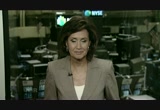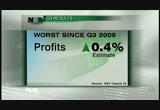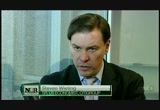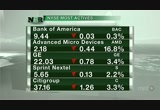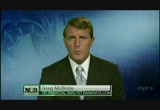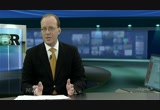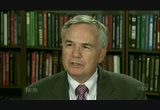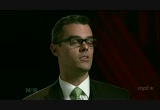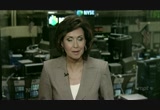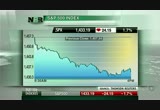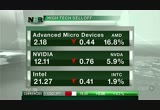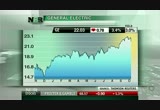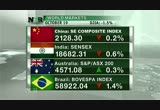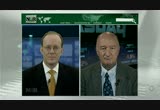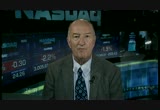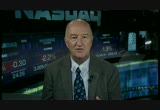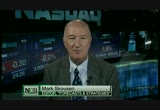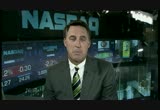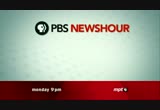tv Nightly Business Report PBS October 19, 2012 7:00pm-7:30pm EDT
quote
7:00 pm
7:01 pm
7:02 pm
to it, there doesn't seem to be any mercy, which simply probably tells us in a broad sense that stocks are to a large extent almost priced to perfection. >> susie: corporate america may be down about its future prospects, but american consumers are beginning to feel more upbeat. consumer confidence is at its highest level in seven months. why the disconnect and should investors be concerned about these out of sync views? erika miller reports. >> reporter: for years now, corporate america has been thriving, while consumers have been struggling. but now it seems, the tables have turned. businesses are worrying, while regular americans are feeling more hopeful. first, the worry warts. since the start of earnings season, a host of companies have reported disappointing numbers, including general electric, mcdonalds, google, microsoft and alcoa. across the board, companies are getting slammed by a weak global
7:03 pm
economy, particularly in europe. >> we know that the european debt crisis is still highly impacting companies and, for the most part, there's really no sector that's been able to benefit from growth there very broadly. so it's still the number one region that companies are citing with their toughest region going into even 2013. >> reporter: s&p 500 firms are expected to post their worst earnings and revenue results since 2009. profits are expected to rise just 0.4% and revenues 1.3%. but there will likely be a wide gap between the winners and losers this quarter. >> our two biggest laggers as far as sectors go for the third quarter are commodities-related sectors: materials and energy. materials expected to be down about 21% in the third quarter, energy down almost 17%. whereas on the flipside, companies that we're seeing that are doing quite well, financials expected be up about 20%. >> reporter: but consumers are
7:04 pm
leaving the nail biting to corporate america. they're less concerned about the slowdown overseas and more interested in what's happening in their own backyards. for most, jobs are their primary source of income. and while the labor market is weak, it's still growing. as importantly, real estate prices are rising and homes are most people's biggest asset. only about half of u.s. households even own stocks. but what about anxiety about the presidential election and fiscal cliff? >> i think consumers really will not take notice of the political risk and political events until we are in some real critical break down stages. >> reporter: so, many consumers are feeling good heading into the holidays, even if the mood in corporate america is souring. erika miller, "n.b.r.," new york. >> tom: still ahead, the crash gold joined the sell-off today, following stocks lower, as concerns about earnings and europe, raised new questions about demand.
quote
7:05 pm
7:06 pm
7:07 pm
much of the developed world is either in or on the brink of recession, we could see in effect similar to what we saw last where the downgrade to the u.s. credit rating actually pushes interest rates lower as people continue to flock to the one remaining safehaven which is the u.s. >> reporter: we probably won't see movement on the issue until after november's election. until then, congress will face mounting political pressure to avoid another recession. sylvia hall, "n.b.r.," washington. >> tom: it's common to hear politicians talking tough about china during an election year. president obama is quick to point to trade penalties his administration has put on chinese products. governor mitt romney has promised to label china a currency manipulator for holding back the value of its currency against the dollar. but is getting tough on china the right solution? darren gersh reports. >> reporter: if the u.s. and china had facebook accounts, their relationship status would be "it's complicated." there's agreement and disagreement on national
7:08 pm
security and economics. the u.s. pushes on human rights. the chinese push back demanding mutual respect. economist john silvia says it's all too complex to manage by ultimatum. >> it's a relationship of constant negotiation. much like many of us do with a marriage. it's not i have to win today. i win tomorrow. it's one of i compromise, i learn what you want. and we work forward over time. it's a long term negotiating process because we are going to be with china for at least the next 50 to 100 years. >> reporter: there is a reason presidential candidates talk tougher on china than sitting u.s. presidents. a trade fight between the world's two largest economies could weaken confidence in the global economy. >> there is the danger of a spiraling trade war that was never intended, by anybody on the u.s. side or on the chinese side, but just like a regular war, things can spiral out of control into places people never intended and i think there is a serious risk of that.
7:09 pm
>> reporter: that is always the argument against a public trade fight with china, and critics say that's why our trade deficit continues to widen. >> these pessimists have not a shred of evidence to base their case on, because a tough approach toward china has never been tried to any significant, sustained basis by any american president. >> reporter: but few economists believe china is to blame for of our biggest economic woes. but that's the view both parties are happy to pitch at election time. >> if the public solidifies a really, really negative, pessimistic view about china's role in the international system, china's role in the international economy, etc, that can become a binding constraint on american politics on american policy towards china. >> reporter: but no one wants the economic equivalent of the cold war and that's why the winner of this election will sound more cautious on china once he's in the oval office. darren gersh, "n.b.r.," washington.
quote
7:10 pm
7:11 pm
7:12 pm
schmidt gets paid by the hour and is limited to 40 hours a week. and while freelancing lets her focus more on her family life than her professional one, she admits there are drawbacks. >> health insurance is an issue, vacation time is an issue. when i don't work i don't get paid, so you have to balance that out. and, i think that you know looking at it long-term and saying 20 years from now if i have to go back and find a job would i be able to? that's one of the challenges. >> reporter: for now schmidt thinks the benefits outweigh the challenges. >> he is a dog that needs a lot of attention. >> reporter: with mom at home the family was able to adopt oreo. and while the mother of two thinks she could make more money working full-time, she thinks the extra cash might get eaten up on child care, petsitters, and commuting into chicago. when schmidt started freelancing, she intended to one day go back to working full time. now she's not sure she ever will. >> i hope that i can continue to
7:13 pm
freelance at the rate that i'm doing now and stay out of an office. oreo hopes so, too. diane eastabrook, "n.b.r.," palos hills illinois. >> tom: september came and went without a significant stock sell-off despite its record as the worst month for investors. but not october. the major indices had their worst sell-off since june. the s&p 500 saw selling from the opening bell and prices kept falling throughout the session. the low of the day was hit an hour before the closing bell. it ended down 1.7%. trading volume picked up as prices fell. 939 million shares traded on the big board. 2.2 billion on the nasdaq. all ten major stock sectors were lower. the heaviest selling was in technology, down 2.3%. the material sector fell 2%. and industrials were down 1.8%. despite today's drop, two of the three big indices are higher
7:14 pm
tonight compared to a week ago. the dow industrials hung on to the smallest of weekly gains, up 0.1%. technology saw the worst performance. the nasdaq fell 1.3%. and the s&p 500 gained 0.3% on the week. semiconductor maker advanced micro devices saw the heaviest selling in the tech sector thanks to its disappointing quarter and decision to cut staff as it faces a fast- changing computer market. a.m.d. shares lost 16.8% on heavy volume. other chip stocks were lower too. n-vidia fell 5.9%. investment bank f.b.r. cut its rating to market perform due to the ongoing weakness in traditional computer sales. intel, which had its own disappointing results earlier this week, fell 1.9%. but the earnings weakness extended beyond technology. mcdonald's turned in disappointing results for the second quarter in a row. earnings were four cents below estimates as restaurant sales
7:15 pm
growth slowed to its lowest pace in nine years. mcdonald's also cautions october sales have continued on that slower trend. it was the worst percentage loser among the dow industrial stocks, falling 4.5%. this is its lowest price since late august. both mcdonald's and fellow dow stock general electric saw business slow in europe. for g.e., earnings were not a disappointing, matching analyst expectations but revenue was less than anticipated. and g.e. was cautious at best about 2013. the stock fell 3.4%. volume doubled as the stock closed at a five week low. g.e. did stick with its prediction of double digit earnings growth for the full year. but another conglomerate reported better than expected earnings, despite the european trouble. honeywell shares fought against the weak market, rising 1.7% even though quarter revenues were lighter than forecast. its aerospace and chemicals businesses helped its third quarter financial performance.
quote
7:16 pm
482 Views
IN COLLECTIONS
WMPT (PBS) Television Archive
Television Archive  Television Archive News Search Service
Television Archive News Search Service 
Uploaded by TV Archive on

 Live Music Archive
Live Music Archive Librivox Free Audio
Librivox Free Audio Metropolitan Museum
Metropolitan Museum Cleveland Museum of Art
Cleveland Museum of Art Internet Arcade
Internet Arcade Console Living Room
Console Living Room Open Library
Open Library American Libraries
American Libraries TV News
TV News Understanding 9/11
Understanding 9/11

